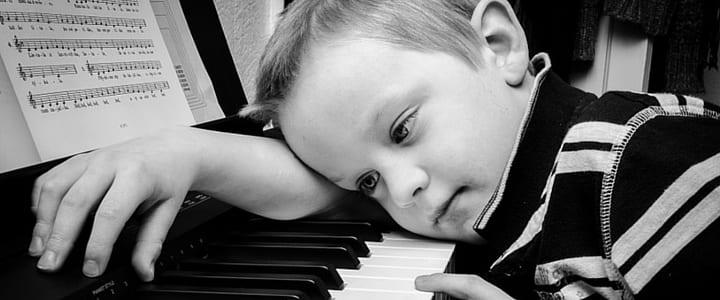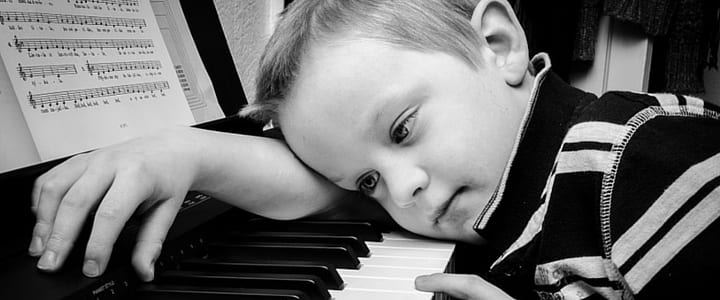Are you having trouble getting your child to practice the piano in between lessons? Below, piano teacher Sally H. outlines five tips on how to encourage your child to practice piano more often…
One of the most important things you can do as a parent is encourage your child to practice their piano. In order for your child to improve, they must be willing to practice regularly.
However, getting your child to sit down and deliberately play the piano can sometimes be a challenge. Here are a few tips on how you can encourage your child to practice piano at home.
What is the Best Way to Practice Piano?
As any parent of a budding musician knows, practicing piano can be a challenge. Not only do you have to find the time to sit down and play, but you also have to keep your child motivated. Here are a few tips to help you get the most out of your piano practice sessions:
- Set realistic goals. Trying to practice for hours at a time is likely to lead to frustration and burnout. Instead, break up your practice into manageable chunks and focus on making steady progress.
- Make it fun. Make sure to incorporate plenty of games, puzzles, and other activities into your practice sessions. This will help keep your child engaged and interested in learning.
- Be patient. Learning to play the piano takes time and patience. Avoid putting pressure on your child and let them learn at their own pace.
With these tips in mind, you can help your child develop a love for playing the piano that will last a lifetime.
Ready to get started with helping your child practice piano? Check out the video below for more tips and consider signing up for online piano lessons to speed things along:
https://www.youtube.com/watch?v=2wQ1ZXph1HI
What is the Ideal Piano Practice Routine for a Child?
To practice the piano effectively, it is important to have a routine in place. This will help to make the most of the time spent practicing and aid in the progression of skills. A routine does not need to be complicated or rigid, but should be something that can be followed easily. Here is an example of an ideal piano practice routine for a child.
Warm Up Exercises and Piano Chords
The first part of the practice routine should be dedicated to some simple warm-up exercises. These can include playing scales, arpeggios, and chord progressions. This will help to loosen up the fingers and prepare them for the rest of the practice session.
Piano Sight Reading Practice
After the warm-up exercises, it is time to focus on technique training. This could involve working on a difficult passage from a piece of music, or practicing a particular type of finger exercise. It is important to focus on one thing at a time so that progress can be made slowly but surely.
Practicing the Piano by Playing Fun Piano Songs
The third part of the practice routine should be devoted to learning new pieces of music. This could involve sight-reading a new piece, or working on a piece that has been partially learned already. It is important to tackle something new each week so that progress continues to be made.
How to Practice Piano – Parenting Tips
You’ve signed your child up for piano lessons and her new instructor encourages you to have her practice piano every day at home.
Your child, however, is giving you a hard time whenever you ask her to practice piano.
Many parents face this same exact scenario. They pay for piano lessons, but can’t seem to get their child to practice the recommended amount of hours per week.
So, how can you increase the likelihood that your child will play daily and be prepared for his/her lesson every week?
Below are five tips for ensuring your child develops into a responsible piano student.
1. Use the Word Play
Rather than say “It’s time to practice piano,” change your wording and say “It’s time to play the piano.” The word “play” is a good word, as it activates all sorts of fun images in a child’s head.
Speaking of play, there are a ton of piano practice games you can play with your child; for example, musical jenga, lego chords, and bingo! For a complete list of 20+ piano practice games, click here.
2. Be Creative
Add creativity to your child’s assignments; for example, ask him or her to write you a short song. Even if it’s just a few notes of their own, your child will feel proud to express his or her personal creativity.
Join in on the fun and be an active and enthusiastic listener. Your child will learn that creating music generates good feelings, and practicing piano can actually be fun!
3. Find the Right Teacher
A concert pianist’s credentials may look good on paper, but he or she may not be the best teacher for your beginner student. The effectiveness of beginner piano lessons is all about a good match of personalities between child and instructor.
Watch your child leave the lesson. Is he or she smiling, skipping, laughing, dancing? Or is he or she walking with his or her head down, looking bewildered, frightened, or dare I say, crying?
Piano lessons should be an exercise in positive learning. Don’t settle for anything less.
4. Create a Pleasant Environment
Where is the piano locatedin your home? Is it in the cold, gloomy basement or in the family room near the television? A piano practice room that’s comfortable and inviting can make a world of difference for a blossoming musician.
The piano should be placed in a room where there is a reasonable amount of privacy, but not in a place that makes the student feel secluded.
A piano in the dining room is a beautiful addition. A keyboard in a teenager’s bedroom creates some wonderful private moments.
Placement of the piano should be in a special area where the student is happy and comfortable.
5. There’s No Room for Criticism
Be an appreciative audience. Criticism is very difficult for a young artist to endure when they are learning.
As a parent, your responsibility is to notice the positive elements and reward learning efforts. For example, reward your child with a special treat every time he or she practices for 30 uninterrupted minutes.
Beginner piano lessons should be associated with the positive aspects of achievement. Happy memories create lifelong playing of a beloved instrument.
6. Use a Piano Practice Chart to Offer Rewards
Reward them for practicing regularly. This could be something as simple as letting them choose what they want to eat for dinner or picking out a new book from the library after successfully practicing every day for a week straight.
How to Practice Piano for Beginners
These are just a few ideas on how you can get your child to practice piano at home without too much fussing or bother. It’s important to remember that every child is different, so what works for one may not work for another. Just keep trying different things until you find what works best for your family!
You play a big role in your child’s musical development and success. Help your child practice piano with the helpful tips and tricks above!
 Post Author: Sally H.
Post Author: Sally H.Sally H. began her teaching career at Karnes Music in Schaumburg prior to opening her private All Age Piano Studio in Wauconda, which is located in Lake County, IL. Learn more about Sally here!
Brooke Neuman


